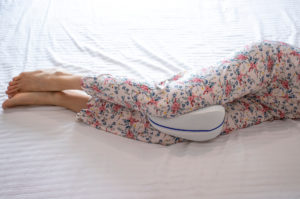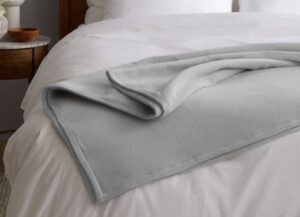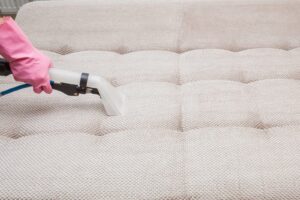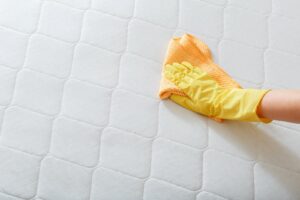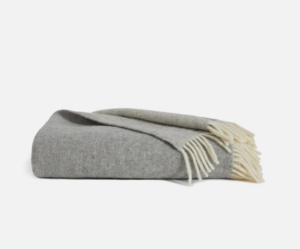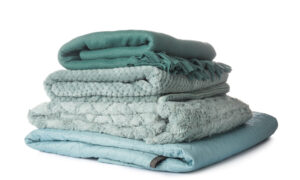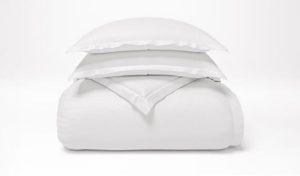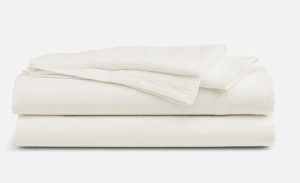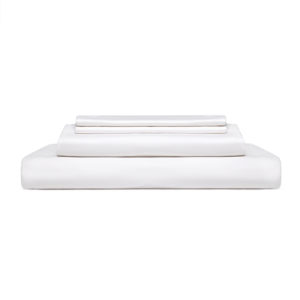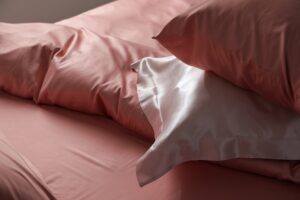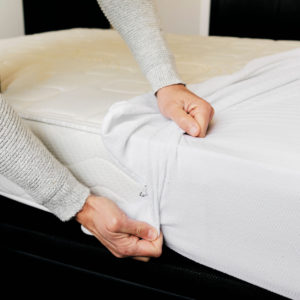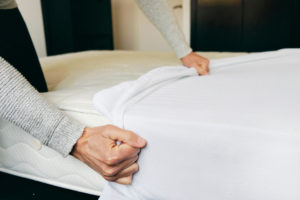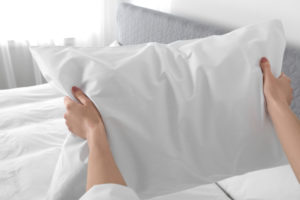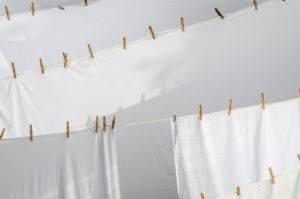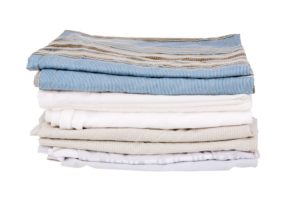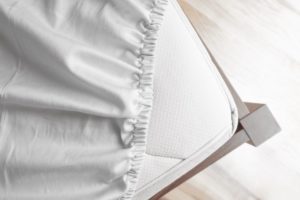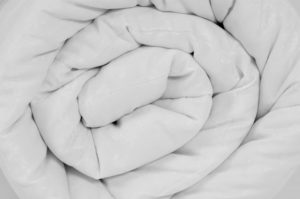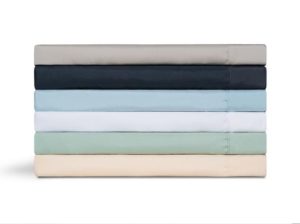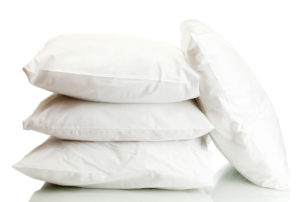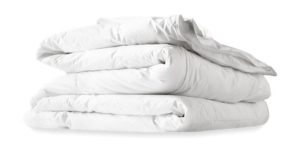Should You Wash New Sheets? Yes, Here’s Why
After finding the best sheets for your bed, it’s only natural to want to put them on and use them right away. But washing your new sheets is an important first step before taking a snooze on them.
New sheets look crisp, fresh, and clean when they come out of the package thanks to various starches and chemicals applied during the manufacturing and packaging process. These substances may cause itchiness or allergic reactions if they aren’t washed off of the sheets prior to use.
We explore all of the benefits of washing new sheets as well as how to when and how often to wash them once they’ve started getting regular use. Washing brand-new sheets may seem like extra work, but it’s well worth it in terms of your health and comfort.
Benefits of Washing New Sheets
Washing new sheets may feel unnecessary, but there are some practical benefits to cleaning them before putting them on your mattress. Though they may look clean, new sheets are often treated with a type of starch to prevent wrinkles while in the package. This can make the sheets feel itchy if unwashed before use.
New sheets can also harbor residues from the manufacturing and packaging process, including chemicals, dust, dirt, and other allergens that can accumulate before being sold. Any one of these substances can trigger allergies or cause an unexpected skin reaction, making this step especially important for people with sensitive skin. An initial washing may also reveal any flawed stitching or manufacturing defects.
Should You Wash All New Bedding?
Ideally, all new bedding should be washed before being placed on your bed. Sheets, pillowcases, and blankets are particularly important to wash because they come in direct contact with your skin. On the flip side, a bed skirt or mattress protector are examples of bedding you can probably get away with not washing right away.
Even though comforters may not rub up against your skin at night, they should still be washed first to remove their straight-out-of-the-package stiffness. By washing off any lingering chemicals or residues, you can safely lay on the comforter without any concern.
How to Wash New Sheets
If you’re wondering how to wash your sheets, be sure to check the manufacturer’s care instructions. They may indicate the need for specific handling, especially when dealing with delicate materials like silk. That said, many sheets can be machine-washed on a gentle cycle that won’t damage the material’s fibers. Dark-colored sheets may need to be washed separately and in colder water to prevent the color from running or fading.
Some people add a small amount of baking soda or distilled vinegar to the wash cycle to help remove all starches and chemicals. Taking this extra step may be beneficial if you have a tendency toward skin reactions or allergies.
To dry your sheets, look closely at the information on the product tag. In most cases, you can tumble dry sheets on low, but some materials may need air drying. When using the dryer, it’s best to transfer the sheets to the dryer immediately after the wash cycle ends to prevent any odor or mildew from accumulating.
How Often Should You Wash Your Sheets?
In general, you should wash your sheets around once a week. Sheets and bedding that aren’t regularly cleaned can start to smell and may become a hotspot for allergens and bacteria that can trigger asthma, skin breakouts, and other reactions.
Washing frequency may vary from person to person depending on health needs and lifestyle. You may need to wash your sheets more often if you sweat heavily, have allergies or sensitivities, or eat and drink in bed. You may also need to do more frequent washing when you are sick.
If a pet shares your bed, it’s recommended to wash your sheets every few days to prevent fur, dander, and dust from dirtying your sleep environment.
Ideally, you should wash your fitted sheet, flat sheet, and pillowcases at the same time and on the same schedule. Having at least one extra bedding set can make it easier for you to maintain a regular cadence for keeping all your bedding items clean.
How Often Should You Replace Your Sheets?
Sheets that are used daily typically need to be replaced after about two years. That said, the lifespan of a sheet set varies based on the quality of material and how it’s used and cared for. For example, most sheets won’t last as long if you share your bed with pets. High-quality sheets generally last longer than two years but only if they are handled with proper care.
If you have more than one set of sheets, rotating them can boost their lifespan. Following the manufacturer’s washing and drying instructions also maintains the integrity of the fabric and prevents premature breakdown of the fibers.
No matter what kind of sheets you have, there are some common signs that let you know when to replace them:
- Pilling
- Stains
- Rips, tears, or other damage
- Fraying hems
- Fading or general discoloration
- Thin or threadbare spots
- Odors that don’t go away or are quick to return after washing
- Worn elastic that no longer holds a fitted sheet on the mattress
Any of these can signal that your sheets are no longer in top shape and may be in need of a replacement.

Still have questions? Ask our community!
Join our Sleep Care Community — a trusted hub of sleep health professionals, product specialists, and people just like you. Whether you need expert sleep advice for your insomnia or you’re searching for the perfect mattress, we’ve got you covered. Get personalized guidance from the experts who know sleep best.




